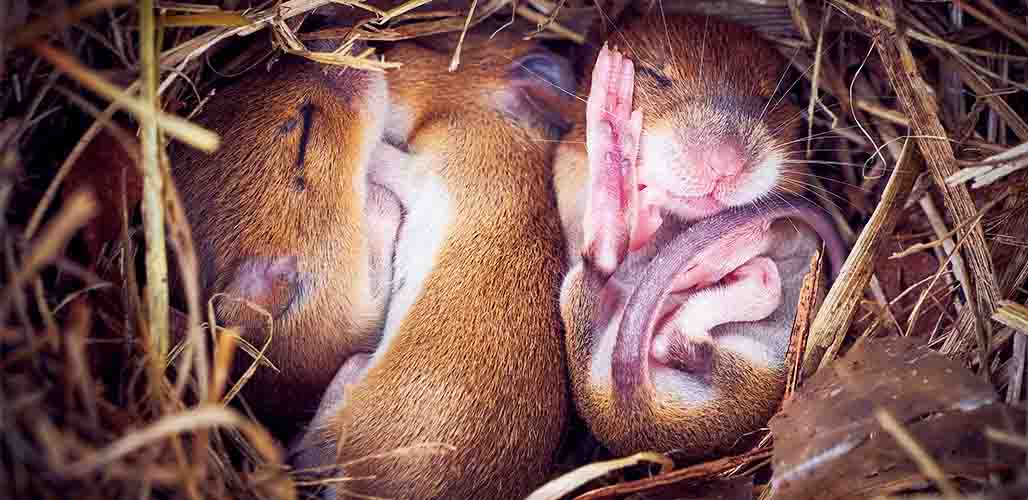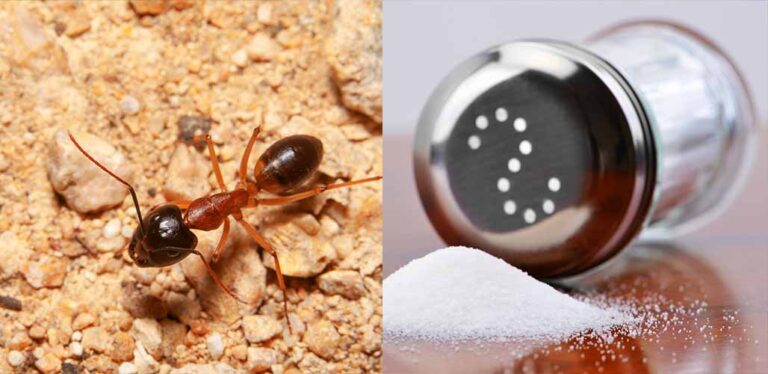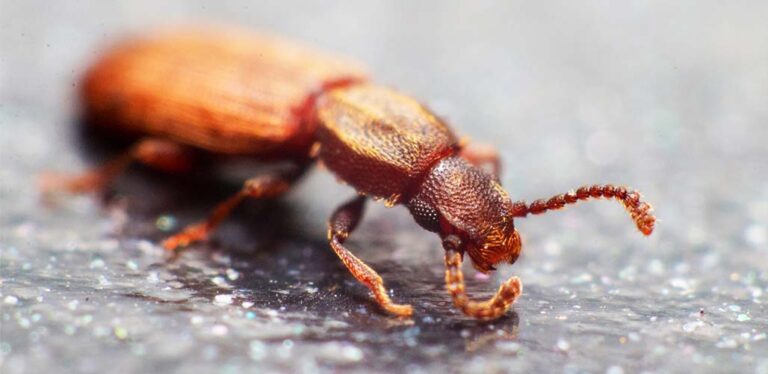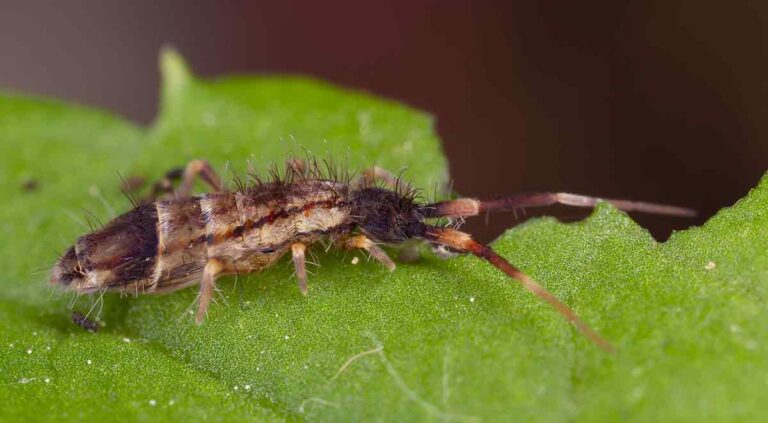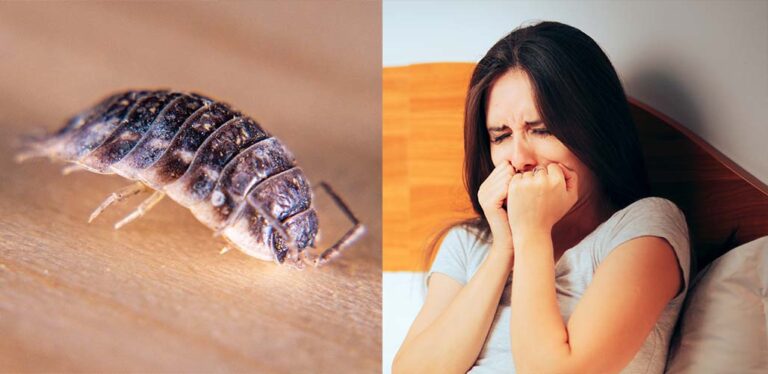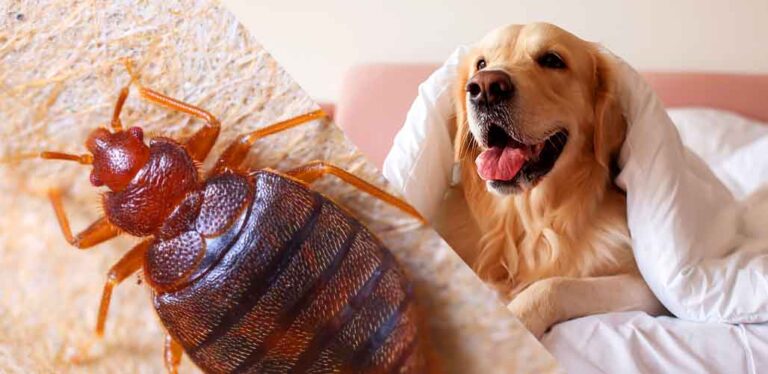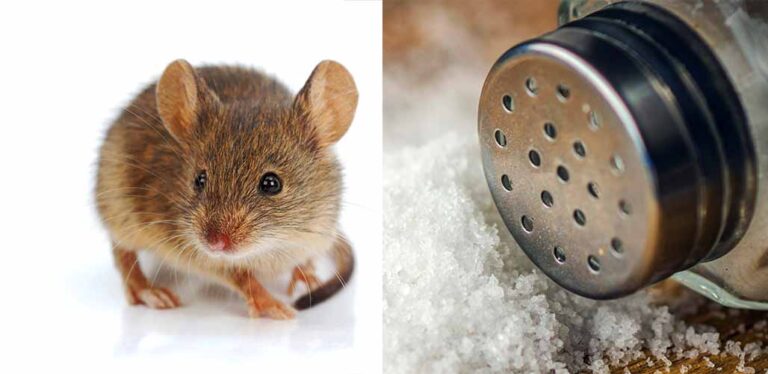What Do Mice Make Their Nests Out Of?
What do mice make their nests out of? If you can hear light scratching in your home, or if you’ve found droppings on the floor, it’s likely you have mice. In fact, you might have even seen a mouse running around when the sun goes down! Mice prefer enclosed, dark nests situated near a food source. But what are they likely to make nests out of in your home? Today, I’ll take a closer look at how to recognise a mouse nest in your house and how to remove one safely.
Contents
- Where do mice hide during the day?
- What do mice build nests out of?
- How to spot a mice nest outside
- What happens if you disturb a mouse nest?
- How do I get rid of a mouse nest?
- Will mice leave if you remove the nest?
Where Do Mice Hide During the Day?
Mice activity patterns can vary depending on several factors, including the availability of food. But, generally most mice are either nocturnal or diurnal, meaning they are the most active at night or at dawn and dusk. This is why you might never see any actual mice in your home, despite seeing and hearing evidence of them. You’re more likely to see a mouse if you wait until night time. So, where are mice hiding throughout the day?
Mice won’t be active during the day because they’ll be sleeping, resting, and sheltering. They’ll do this in nests that they make in your home. The placement, structure, and materials used for this can vary depending on the type of mouse in your house. But, generally, mice will make nests in cluttered rooms, cabinets, and near food sources.
What Do Mice Build Nests Out Of?
Nesting material, shape, and location will depend on the mouse species. For instance, field mice will either burrow deep into the ground or create small, spherical nests from plant material, usually in natural shelters, like wood piles or dead trees. But, mound building mice will create piles of dirt and plant matter for their nests.
Mouse nests in your home will vary depending on the materials available to the mice. But, studies have shown that wild mice prefer long, fibrous materials for their nests. Hay is a common and popular choice in the wild, but this usually isn’t available in domestic settings. So, mice in your home might make their nests from hair, shredded paper, fabric, or even very thin layers of plastic. As well as the shape and texture of nesting materials, mice will prefer opaque options over translucent or transparent options – they’ll want things that will block out light for when they’re sleeping during the day.
What Does a Mice Nest Look Like Outside?
Not all mice nests will look the same. Nest size and shape can depend on the mouse species and the materials available. But, they tend to be small and enclosed. Mice nests provide the mice dwelling in them with warmth and shelter, but also somewhere safe from predators for them to sleep, eat, and reproduce.
Mice nests could be found inside another object. Outside the house this could be in piles of earth, trees, dense plants – a huge range of places. Nests will have a small entrypoint and will be dense enough to keep a mouse warm inside. In your home, a mouse nest can be hard to spot from the outside. But, look for small holes in your cupboards, walls, skirting boards, and so on.
What Happens if I Disturb a Mouse Nest?
If you disturb a mouse nest and there are any mice in it, they’re going to run away if they are able to. The only instances in which they might not would be if they’re injured and unable to escape, if they’re trapped by something, or if they are babies.
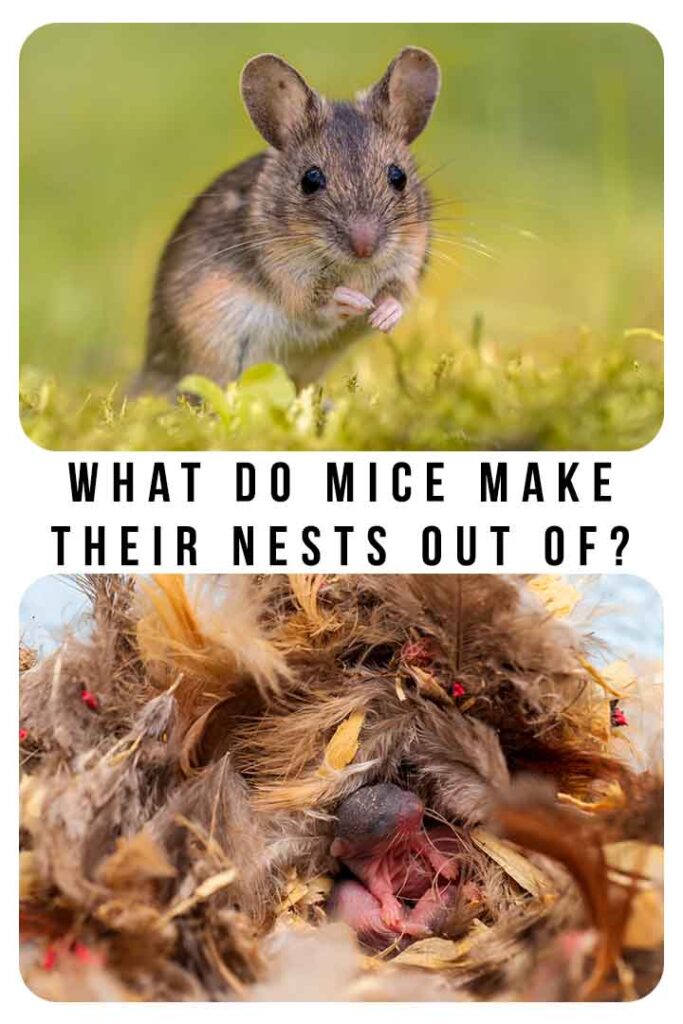
If your mouse nest has babies, a mom mouse might run away initially, but will almost always come back for her babies. She will usually do this to move them somewhere safer – which could still be in your home. But, at times, mice might choose to stay in a nest even after it has been disturbed – whether they’re a mom or not. If a nest is in an ideal location, close to food, private and dark, and mice can’t find a better alternative, they may prefer to stay there and risk being disturbed again.
How Do I Get Rid of a Mouse Nest?
If you’ve managed to locate a mouse nest in your home, it’s natural to want to remove it straight away. But, there are a few important ways you should prepare – and some considerations to make. Firstly, don’t just grab it as soon as you see it. If you remove the nest at night, there’s a very high chance that the mice living there will be elsewhere in your home. In this instance, they would usually just make a new nest, leaving your problem unsolved.
One of the most important steps when dealing with a mouse nest is to avoid touching it with your bare skin. Touching a mouse nest without protection can lead to the spread of diseases, and could get you bitten by any mice hiding inside. So, find some thick gloves, and consider wearing a face mask.
Put the nest in a container of some sort, like a bucket or a bin, to reduce your contact whilst getting rid of it. Mice nests are considered hazardous waste. So, they will either need to be burnt, or disposed of in a biohazardous waste bin. In most cases, it is easier to call a pest control professional than to try and deal with a nest or infestation yourself. Once the nest is gone, you’ll need to thoroughly clean the area it was in with bleach.
Will Mice Leave if You Remove the Nest?
Unfortunately, mice won’t necessarily leave your home just because you’ve removed a nest. Mice could be out of their nest when you get rid of it, or there could be other nests in your home that you haven’t yet found. If a mouse returns to find their nest gone, it’s likely that they will just create a new one. On top of this, releasing mice too close to your home can lead to them simply coming back inside. So, it can be harder than you’d expect to deal with an infestation.
This is why most people will be better off seeking a professional. Professional pest controllers will be able to sweep your home to find all nests. And, they’ll dispose of the nests properly, so you don’t have to get your hands dirty – quite literally!
What Do Mice Make Their Nests Out Of?
Mice nests can be hard to spot in your home and in the wild! They favour long, fibrous materials like hay, but when this isn’t available, they can get quite creative. Mice can spread diseases and cause a lot of damage in your home. So, it’s important to deal with mice nests quickly and efficiently when you find them in your home.
More Pest Control Advice
- Getting rid of pill bugs in your home
- Termites in your home
- Will glass doors keep mice out?
- Can ants kill my lemon trees?
- What attracts grain beetles?
References
- Bardos, B. (et al), ‘Nest Material Preference of Wild Mouse Species in Laboratory Housing’, Applied Sciences (2022)
- Deacon, R., ‘Assessing Nest Building in Mice’, Nature Protocols (2006)
- Gaskill, B. (et al), ‘Heat or Insulation: Behavioral Titration of Mouse Preference for Warmth or Access to a Nest’, Plos One (2012)
- Buhot-Averseng, M., ‘Nest-Box Choice in the Laboratory Mouse: Preferences for Nest Boxes Differing in Design (Size and/or Shape) and Composition’, Behavioral Processes (1981)
- Stock, T. (et al), ‘Integrated Pest Management of the House Mouse in Schools’, Integrated Plant Protection Center (2013)
- Hut, R. (et al), ‘Working for Food Shifts Nocturnal Mouse Activity into the Day’, Plos One (2011)
- Lopes, P. (et al), ‘Infection-Induced Behavior Changes Reduce Connectivity and the Potential for Disease Spread in Wild Mice Contact Networks’, Scientific Reports (2016)

